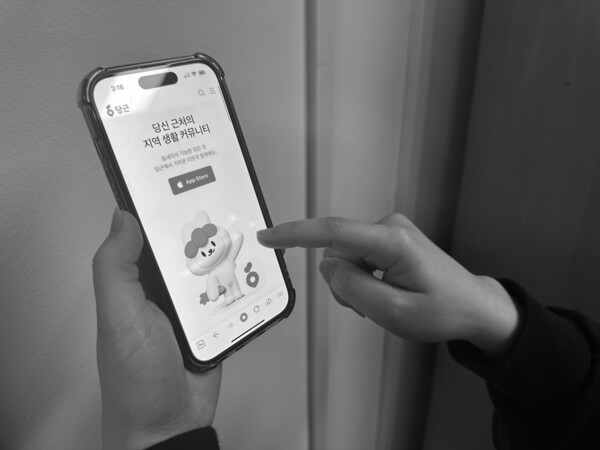
“Danggeun!” This sound is a notification from the mobile application “Karrot (Danggeun in Korean).” Danggeun refers to the meaning “near you.” Karrot is a community of neighbors designed to share information and services information sharing. Karrot started out as a used goods trading network, but now, trades such as real estate, car transactions, as well as part-time jobs are available. The platform, which had only 1 million monthly users in 2018, has accumulated 35 million subscribers as of October last year, and it is now becoming a platform that connects community residents and is not just limited to trading transactions. The Dongguk Post takes a look at Karrot’s success story and how Karrot succeeded in Korean society.
Let us briefly look at Karrot’s service launch history. Karrot started as a used goods trading site in the early days, but in September 2020, it was used as a communication community between neighbors under the service name of “neighborhood life.” Subsequently, in February 2021, it launched a self employed local marketing channel with the service name “Biz profile,” and in October launched “Karrot Part-time,” a region-based job search service. On February 22nd, it began to provide the “Karrot Pay” service, a region-based simple remittance payment method, and in July last year, it provided a “gathering” service where people could have neighborhood gatherings on various topics.
In addition, in September last year, the company removed the market from the name of the “Karrot Market” and changed the name to “Karrot,” rebranding to solidify its identity as a local living community beyond used transactions. After the rebranding, Karrot started focusing on “connection” rather than trading by strengthening gathering and pay. Today, Karrot has entered more than 460 regions worldwide, including the U.K., Japan, Canada, and the U.S., under the name of “Karrot.” It is making new history every day with an accumulated investment of 227 billion won from leading domestic and foreign investors.
Then, how was it possible to establish itself in the lives of Koreans with a high cumulative number of subscribers? First, Karrot provides a variety of services, such as used goods transactions, sharing information on neighborhood life, promoting neighborhood stores, part-time job search, and direct transactions from used cars to real estate. Through various services that connect local residents, Karrot contributes to the re-formation of Korean society, where neighbors faced against each other due to the spread of COVID-19 and individualism.
Second, Karrot values user initiative. When a user enters the app, one can customize the category of the product they want on the first screen. This makes the system controllable by users. Therefore, they have more controllability over the app by customizing products or services according to their characteristics, which leads to increased satisfaction.
Third, Karrot provides a differentiated experience from existing other used goods transaction platforms. In Karrot, people must authenticate their neighborhood to use the service, and after used goods transactions, they can evaluate each other. In addition, the user’s profile shows the evaluations received from other users. Through this procedure, users can trust that they are from the same neighborhood, using the app with confidence, and decide whether to purchase or not based on the others’ evaluation record. Moreover, Karrot Pay has introduced a payment method that does not leak personal information, such as other users’ accounts or names, to enhance users’ convenience and make the app more secure.
The features of focusing on transactions within the neighborhood and providing various services seem to contribute to success. Despite its high cumulative subscribers, Karrot is constantly changing to serve its users better by trying rebranding. The Dongguk Post hopes that it would be beneficial to learn about the history of Karrot, which many people are using now.

